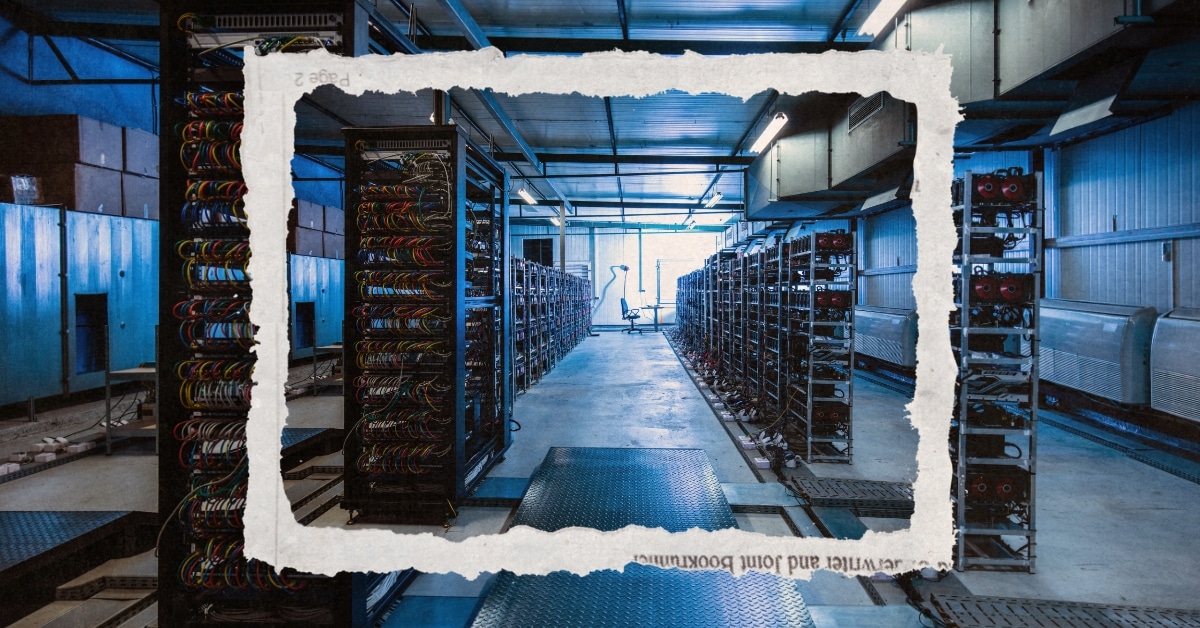News
How To Buy Cryptocurrency – Forbes Advisor UK

Table of Contents
Show more
Show less
Forbes Advisor has provided this content for educational reasons only and not to help you decide whether or not to invest in cryptocurrency. Should you decide to invest in cryptocurrency or in any other investment, you should always obtain appropriate financial advice and only invest what you can afford to lose.
According to a Forbes Advisor survey, 90% of respondents had heard of Bitcoin making it the most well-known cryptocurrency. Other familiar coins include Ethereum (50%), Dodegcoin (45%) and Binance Coin (36%). Lesser-known coins according to the survey include Solana (21%) and Cardano (18%).
Figuring out how to buy any cryptocurrency can be confusing to newcomers. But, so long as investors are aware of the considerable risks, learning the ropes can be pretty simple. Investors can start with these five easy steps.
1. Choose a broker or crypto exchange
To buy cryptocurrency, investors first need to choose a broker or a crypto exchange. While either allows the purchase of crypto, there are key differences between them to keep in mind.
What is a cryptocurrency exchange?
A cryptocurrency exchange is a platform where buyers and sellers meet to trade cryptocurrencies. Exchanges often have relatively low fees, but they tend to have more complex interfaces with multiple trade types and advanced performance charts, all of which can make them intimidating or even unsuitable for new crypto investors.
eToro is one example of a well-known cryptocurrency exchanges. But while these companies’ standard trading interfaces may overwhelm beginners, particularly those without a background trading stocks, they also offer user-friendly purchase options.
The convenience comes at a cost, however, as the beginner-friendly options charge substantially more than it would cost to buy the same crypto via each platform’s standard trading interface. To save on costs, investors might aim to learn enough to utilise the standard trading platforms before making their first crypto purchase, or not long after.
An important note: new investors to crypto will want to make sure the exchange or brokerage of their choice allows fiat currency (such as sterling and dollar) transfers and purchases made with sterling.
Some exchanges only investors to buy crypto using another crypto. This means investors would have to find another exchange to buy the tokens their preferred exchange accepts before beginning to trade crypto on that platform.
Related: Best Crypto Exchanges
What is a cryptocurrency broker?
Cryptocurrency brokers take some of the complexity out of purchasing crypto, offering potentially easier-to-use interfaces that interact with exchanges for investors.
Some charge higher fees than exchanges, however. Others claim to be “free” while making money by selling information about what traders are buying and selling to large brokerages or funds or not executing user trade at the best possible market price.
While on one hand, they can be more convenient, investors should be careful with brokers because they may face restrictions on moving cryptocurrency holdings off the platform. With some, for example, investors cannot transfer crypto holdings out of their account.
This may not seem like a huge deal, but some crypto investors, especially advanced investors, prefer to hold their coins in crypto wallets for extra security. Some even choose hardware crypto wallets that are not connected to the internet for even more security.
2. Creating and verifying an account
Once a cryptocurrency broker or exchange has been chosen, investors can sign up to open an account. Depending on the platform and the amount they plan to buy, they may have to verify their identity. This is an essential step to prevent fraud and meet anti-money-laundering regulatory requirements.
Investors may not be able to buy or sell cryptocurrency until they complete the verification process. The platform may require investors to submit a copy of their driving licence or passport, and even to upload a selfie to prove their appearance matches the documents they submit.
3. Deposit cash to invest
To buy crypto, investors will need to ensure they have funds in their account. This might mean depositing money into their crypto account by linking their bank account or making a payment with a debit or credit card (watch out for high charges from card providers with the credit card option – see below).
Depending on the exchange or broker and the funding method, investors may have to wait a few days before they can use the money deposited to buy cryptocurrency.
Here’s one big buyer beware: while some exchanges or brokers allow investors to deposit money from a credit card, doing so is extremely risky and often expensive.
Many credit card companies process cryptocurrency purchases with credit cards as cash advances. This means they’re likely to be subject to higher interest rates than regular purchases, and also likely to charge additional cash advance fees.
For example, investors may have to pay 5% of the transaction amount when making a cash advance. This is on top of any fees that the crypto exchange or brokerage may charge, and these can run up to 5% themselves, meaning investors might lose 10% of their crypto purchase to fees.
4. Placing a cryptocurrency order
Once there is money in their account, investors are ready to place their first cryptocurrency order. There are hundreds of cryptocurrencies to choose from, ranging from well-known names like Bitcoin and Ethereum to more obscure cryptos like Theta Fuel.
When the cryptocurrency to purchase is decided on, investors can enter its ticker symbol (Bitcoin, for instance is BTC) and how many coins they’d like to purchase.
With most exchanges and brokers, investors can purchase fractional shares of cryptocurrency, allowing them to buy a sliver of high-priced tokens like Bitcoin or Ethereum that otherwise take thousands of pounds to own.
According to a Forbes Advisor survey, just over a quarter of respondents (27%) said they had cryptocurrency holdings to £500. Just under a quarter (24%) said their exposure to the sector was between £501 and £1,000. Investors should only invest what they can afford to lose.
5. Select a storage method
Cryptocurrency exchanges are not backed by protections like the UK’s Financial Services Compensation Scheme, and they’re at an additional risk of theft or hacking. Crypto owners could even lose their investment if they forget or lose the codes to access their account. That’s why it’s so important to have a secure storage place for cryptocurrencies.
As noted above, if buying cryptocurrency via a broker, investors may have little to no choice in how their cryptocurrency is stored. If the purchase of cryptocurrency is made through an exchange, there are more options:
- Leave the crypto on the exchange. When buying cryptocurrency, it’s typically stored in a so-called crypto wallet attached to the exchange. If an investor doesn’t like the provider the exchange partners with or wants to move it to a more secure location, they might transfer it off of the exchange to a separate hot or cold wallet. Depending on the exchange and the size of your transfer, investors may have to pay a small fee to do this
- Hot wallets. These are crypto wallets that are stored online and run on internet-connected devices, such as tablets, computers or phones. Hot wallets are convenient, but there’s a higher risk of theft since they’re still connected to the internet
- Cold wallets. Cold crypto wallets aren’t automatically connected to the internet, making them most secure option for holding cryptocurrency. They take the form of external devices, like a USB drive or a hard drive. Investors should be careful with cold wallets, though: if they lose the key code associated with them or the device breaks or fails, access to that cryptocurrency may be lost for good. While the same could happen with certain hot wallets, some are run by custodians who can help investors get back into their account if they are locked out.
Alternative ways to buy cryptocurrency
While buying cryptocurrency is a trend right now, it’s a volatile and high risk investment choice unlikely to be a suitable investment for many investors. But some investors may choose to indirectly invest in Bitcoin and other cryptocurrencies.
1. Crypto exchange-traded funds (ETFs)
Exchange traded funds are popular investments that allow investors exposure to hundreds of individual holdings in one fell swoop. This means they provide immediate diversification and are often less risky than selecting the individual investments.
There is an appetite for cryptocurrency ETFs, which allow you to invest in many cryptocurrencies at once. The first cryptocurrency ETFs started to be rolled out to private investors in Autumn 2021.
2. Companies connected to cryptocurrency
For investors who would rather invest in companies with tangible products or services, but still want exposure to the cryptocurrency market, they could consider buying shares in companies that use or own cryptocurrencies and the blockchain that powers them. They will need an online brokerage account to buy shares in publicly-listed companies such as:
- Nvidia (NVDA) This technology company designs and sells graphics processing units, which are at the heart of the systems used to mine cryptocurrency
- PayPal (PYPL) Already a popular choice for people buying items online or transferring money to family and friends, this payments platform recently expanded to allow customers to buy and sell select cryptocurrencies with their PayPal accounts
- Square (SQ) This payment services provider for small businesses has purchased Bitcoin worth millions of dollars since October 2020. In February 2021, the firm disclosed that Bitcoin made up around 5% of the cash on its balance sheet. In addition, Square’s Cash App allows people to buy, sell and store cryptocurrency.
As with any investment, users should first consider their investment goals and current financial situation. Cryptocurrency can be extremely volatile (a single tweet can make its price plummet) and it remains a very speculative investment.
According to the Forbes Advisor survey, there are a range reasons why people decide not to invest in cryptocurrency. For exampe, 58% state that they do not trust it, while 34% do not understand the technology.
Your capital is at risk, and you could get back less than you put in. Cryptocurrency is highly volatile and unregulated in the UK and is not eligible for any form of regulatory consumer protection.
Cryptocurrency is unregulated in the UK. The UK regulator, the Financial Conduct Authority, has repeatedly warned investors that they risk losing all their money if they buy cryptocurrency, with no possibility of compensation.
Frequently Asked Questions (FAQs)
How much money is required to buy cryptocurrency?
Some cryptocurrencies, such as Dogecoin (DOGE), can be bought for pennies. Others, such as Shiba Inu (SHIB) sell for a fraction of a penny, so the price of crypto ownership can be extremely low.
Big tokens like Bitcoin and Ethereum are worth tens of thousands of pounds. So unless investors have big money to invest, they’ll be buying a percentage of a single token.
Whatever the case, crypto exchanges tend to ask for a minimum deposit of around £10 before investors can buy any cryptocurrency, even if they only want to buy a token worth less than a penny.
A better question investors can ask is how much they can afford to lose speculating on cryptocurrency because, as the financial watchdog the Financial Conduct Authority (FCA) has repeatedly warned, anyone who invests in these volatile markets should be prepared to lose all their money.
What are the fees for buying crypto?
There are two main kinds of fees investors can potentially be charged when buying crypto currency.
The first is a transaction charge for any debit or credit card transaction that takes place when an investor funds their crypto account from their regular fiat (dollars or pounds) account. These are generally around 3% of the transaction.
Investors opting to pay by credit card should note that these transactions attract a higher rate of interest than for a standard purchases. This is because credit card providers treat crypto transactions as cash advances.
Interest is also charged from the moment the transaction is processed whereas standard purchases don’t accrue interest for 56 days.
In any case, it is not a good idea to take on debt to pay for a volatile asset such as cryptocurrency.
Bank transfers into crypto accounts, however, tend to be free.
There are also transaction fees charged by the crypto exchange that the investor is using.
For example, if an investor plans to spend 17.75 Ether (ETH) on 1 Bitcoin (BTC), they’d actually see slightly less than 1 BTC in their account after the trade because the crypto exchange facilitating the trade would take its cut.
Transaction fees vary by platform, so traders are advised to compare fees before executing any trades.
Is cryptocurrency a good investment?
Cryptocurrencies are unpredictable and volatile. The FCA has issued several warnings that investors should be prepared to lose all of their money.
For example, Bitcoin holders saw their holdings lose more than 60% of their value between March and December last year. While there were intermittent peaks during that time, crypto cannot be relied on for consistent returns.
If one had a high tolerance for risk and didn’t invest any more than they were prepared to lose, one might be able to consider investing in crypto currency.
Is tax payable on cryptocurrency?
Profits from cryptocurrency are subject to Capital Gains Tax (CGT).
Everyone has a CGT allowance of £6,000 (from April 2023) which means the tax is not payable on profits below that figure. Anything above is taxed at 10% up to the basic tax rate band and 20% at the higher and additional bands.
What could be the best way to buy cryptocurrency for beginners?
Cryptocurrencies are sold via crypto exchanges – some of which are friendlier and more accessible to beginners, with educational resources to help newcomers understand some of the things they need to know.
We’ve ranked our pick of the best crypto exchanges here.
Is cryptocurrency safe for beginners?
Trading crypto is as safe for a beginner as it is an experienced investor, in the sense that the platforms they use would be the same and the security measures they’d be encouraged to take are the same.
However, the main danger for newcomers is being unaware of just how volatile the market is, a lesson that experienced traders may have learned the hard way.
No trader, whether they’re a novice or veteran, should invest more money than they’re prepared to lose.
Assuming new traders are aware of the risk, the second danger is around security.
Traders must do everything they can to shield their public and private keys from hackers seeking to steal them so that they can assume command of their accounts and crypto holdings.
How can a crypto exchange account be opened?
To open a crypto exchange account, investors can visit the exchange’s website or download its app.
Each crypto exchange has its own unique registration process, and with some, investors may be able to make an account and buy and sell small amounts of crypto without verifying their identity or submitting much sensitive information.
But as the industry has evolved, measures to prevent money laundering and fraud have been introduced, investors will need to provide:
- Name
- Date of birth
- Postal address
They may also have to verify their identity by submitting photo identification.
News
US Cryptocurrency Rules Delayed by ‘Never-Ending’ Lawsuits

Ripple CEO says cryptocurrency industry still seeking regulatory clarity from US
Speaking to Bloomberg News on Wednesday (July 17), Author: Brad Garlinghouse he said America is behind behind other countries which have already adopted cryptocurrency regulations.
“What we’re seeing, where it’s the UK, Japan, Singapore… even the European Union, more than two dozen countries have come together to provide a framework for cryptocurrency regulation,” Garlinghouse said.
“It’s frustrating that we as a country can’t get that regulatory framework in place. And instead, we have this never-ending lawsuit coming from the SEC that doesn’t really address the problem.”
Ripple has been the target of some of these legal disputes. Securities and Exchange Commission (SEC) sued the company in 2020, accusing it of conducting a $1.3 billion operation offering of unregistered securities tied to its XRP token.
However, last year a judge ruled that only Ripple’s institutional sales of XRP, not retail sales, violated the law, a decision widely seen as a victory for the cryptocurrency industry.
As PYMNTS noted at the time, that ruling has “far-reaching repercussions impact across the digital asset ecosystem, which has long maintained that its tokens do not represent securities contracts.”
However, Garlinghouse told Bloomberg on Wednesday that the company cannot wage multimillion-dollar legal battles over each token.
He spoke to the news agency from the Republican National Convention in Milwaukee, where the party is backing the candidacies of former President Donald Trump and Ohio Sen. J.D. Vance, both of whom are considered pro-cryptocurrency.
But Garlinghouse argued that cryptocurrencies “should not be a partisan issue,” and noted that he had recently attended a conference in Washington that included Democrats, including White House officials.
“I think they were there, listening to the industry… it was refreshing to start having that conversation,” she said.
President Joe Biden earlier this year he vetoed a measure which would have ended the SEC’s special rules for crypto-asset custodians. This legislation was supported by both the digital asset industry and the banking industry.
Ripple early this year donated $25 million to the cryptocurrency industry’s super PAC Fair Smoothiewith Garlinghouse stating at the time that such donations would continue every year, as long as the industry had its detractors.
Second Open SecretsWhich monitor spending For campaigns, the PAC has spent $13.4 million this year, much of it to help defeat Rep. Katie Porter’s (D-Calif.) U.S. Senate campaign.
News
The Future of Cybersecurity in the Cryptocurrency Industry

The cryptocurrency space has had a tumultuous journey, with its fair share of ups and downs. As we look to the future, one area that remains a constant focus is cybersecurity. The digital nature of cryptocurrencies makes them inherently vulnerable to cyber threats, and as the industry evolves, so does the landscape of potential risks.
In 2022, the cryptocurrency market faced significant challenges, with over $2 trillion in market value lost. This event served as a wake-up call for the industry, highlighting the need for robust cybersecurity measures. The future of cryptocurrency security is expected to see a shift towards more regulated and established institutions taking the reins of crypto technology and blockchain infrastructure.
The decentralized nature of cryptocurrencies offers numerous benefits, such as transparency and financial inclusion. However, it also introduces unique security challenges. The risk landscape is filled with threats such as hacking, phishing, ransomware attacks, malware, and social engineering. These threats not only lead to financial losses, but also damage the reputation and trust within the cryptocurrency ecosystem.
Mini-MBA Tekedia edition 15 ((September 9 – December 7, 2024) started recordings; Register today for discounts reserved for early bird customers.
Tekedia AI in Business Masterclass Opens registrations Here.
Join the Tekedia Capital Syndicate and IInvest in Africa’s best startups Here.
The decentralized nature of cryptocurrencies offers many benefits, but it also presents unique security challenges. Cyber risks such as hacking, phishing, and ransomware pose threats to the integrity of digital assets. The infrastructure that supports cryptocurrencies is not immune to vulnerabilities, including smart contract flaws and exchange hacks.
To address these vulnerabilities, the infrastructure that supports cryptocurrencies must be strengthened. Smart contract vulnerabilities, exchange hacks, wallet breaches, and flaws in the underlying blockchain technology are significant concerns that must be addressed to ensure the security and integrity of digital assets.
As cybercriminal tactics and techniques become more sophisticated, the cryptocurrency industry must stay ahead of the curve. The future will likely see more targeted attacks, exploiting weaknesses in infrastructure, networks, and human factors. This requires a proactive and multifaceted approach to cybersecurity.
To mitigate these risks, several measures must be adopted:
Strengthening security measures: Developers, exchanges, and wallet providers must improve security protocols, use strong encryption, implement multi-factor authentication, and conduct regular security audits.
Education and awareness: Users should be educated on best practices for protecting their digital assets, including using strong passwords, recognizing phishing attempts, and using hardware wallets for secure storage.
Looking ahead, the cryptocurrency industry is expected to see an increased focus on robust security measures. Blockchain projects and exchanges are likely to invest in advanced encryption techniques and decentralized storage solutions to protect user assets. The future impact of cyber risk on cryptocurrencies will depend on the collective efforts of stakeholders to address vulnerabilities and strengthen security measures.
Collective efforts by stakeholders in the cryptocurrency space are crucial to address vulnerabilities and strengthen security measures. While challenges persist, advances in cybersecurity technologies and practices offer hope for a more secure and resilient cryptocurrency ecosystem.
The future of cybersecurity in the cryptocurrency industry depends on finding a balance between innovation and regulation. It requires a collaborative effort from all parties involved, from developers to end users, to create a secure environment that fosters trust and growth in the industry. As we move forward, it is critical that lessons learned from past events guide the development of stronger security measures, ensuring the longevity and stability of cryptocurrencies as a vital part of the modern economic toolkit.
Like this:
Like Loading…
News
Bullish XRP and RLBK price predictions rise, outpacing the broader cryptocurrency market, prompting Shiba Inu holders to switch!

Bitcoin’s one-week surge from $60,000 has pushed other cryptocurrencies into an uptrend. However, for many altcoins, this trend has been temporary. Altcoins such as XRP and Shiba Inu (SHIB) have experienced price drops. However, Rollblock, a new altcoin on the Ethereum blockchain, has thrived during this period, attracting thousands of investors looking for long-term growth.
XRP’s Nearly 30% Growth Over Last Week Drops as Selling Pressure Increases
XRP is seeing further price decline as Ripple investors withdraw their profits from the token. The surge in XRP’s price to $0.64 in the past week has provided investors with a perfect opportunity to increase their returns in the short term. With the ongoing sell-off in XRP, XRP has jumped over 8% in the past day and is now trading at $0.59. However, analysts tracking XRP indicators predict that XRP could still extend its gains by over 30% in the coming weeks.
Shiba Inu (SHIB) marks its third consecutive day of losses
Shiba Inu (SHIB) is in a period of adjustment after a week of strong gains. In the last 24 hours, SHIB has seen a jump of over 7%, reflecting a natural market fluctuation. Analysts are observing a death cross on the Shiba Inu chart, which historically signals the potential for future opportunities as the market stabilizes. As investors explore new possibilities, some are diversifying into promising altcoins like Rollblock (RBLK) to strategically rebalance their portfolios and capitalize on the emerging trend.
Rollblock (RBLK) Up Another 7% as New Investors Join Pre-Sale
Rollblock (RBLK) has taken the cryptocurrency market by storm, having attracted investors from more popular altcoins like Shiba Inu (SHIB) and XRP. Rollblock’s growth is attributed to its utility in the $450 billion global gaming industry.
Rollblock aims to use blockchain technology to bridge the gap between centralized and decentralized gambling. With blockchain technology, Rollblock secures every transaction in its online casino, providing transparency and convenience to millions of players who are uncomfortable placing bets on other iGaming platforms.
This innovative use of blockchain technology in the industry has grown Rollblock to over 4,000 new users in less than two months. With plans to add sports betting, this number is expected to grow exponentially in Q3.
Rollblock uses a revenue sharing model that splits up to 30% of its casino’s weekly profits with token holders. This happens after Rollblock buys back $RBLK from the open market and uses half of it for rewards. The other half is burned to increase the price of $RBLK.
Rollblock price has seen four increases in the past month with $RBLK tokens now selling for $0.017. Analysts predict that at the current growth rate, Rollblock could increase by over 800% before the presale ends. For investors looking for a long-term token with growth potential, phase four is the best time to buy Rollblock before its price skyrockets!
Discover the exciting Rollblock (RBLK) pre-sale opportunities now!
Website:https://Rollblockpresale.io/
Social: https://linktr.ee/Rollblockcasino
No spam, no lies, just insights. You can unsubscribe at any time.
News
Texas Crypto Miners Turn to AI as Crypto Declines

As cryptocurrency mining becomes less profitable, Texas cryptocurrency mining companies are switching to supporting artificial intelligence companies.
Bitcoin miners, with their sprawling data centers and access to significant energy resources, are ideally suited for computationally intensive AI operations, and as cryptocurrency mining becomes less profitable, companies see this shift as a logical answer to their problems.
On Thursday, Houston-based Lancium and Denver-based Crusoe Energy Systems announced a multibillion-dollar deal to build a 200-megawatt data center near the West Texas city of Abilene to support advanced artificial intelligence applications such as medical research and aircraft design, CNBC reported. The plant represents the first phase of a larger 1.2 gigawatt project.
Lancium and Crusoe’s move into AI mirrors a broader trend among bitcoin miners. The combined market capitalization of the top U.S.-listed bitcoin miners hit a record $22.8 billion in June. Companies like Bit Digital and Hut 8 are diversifying into AI, with Bit Digital securing a $92 million annual revenue deal to supply Nvidia GPUs and Hut 8 raising $150 million to expand its AI data center.
But the growing popularity of these operations also presents challenges, particularly for the Texas power grid. Last month, the Electric Reliability Council of Texas announced that the state is expected to nearly double its energy production by 2030 to meet the high energy demands of data centers and cryptocurrency operations.
Lieutenant Governor Dan Patrick expressed concern about the projections.
“Cryptocurrency miners and data centers will account for more than 50% of the additional growth. We need to take a close look at these two sectors,” He wrote on Twitter/X. “They produce very few jobs compared to the incredible demands they place on our network. Cryptocurrency miners could actually make more money selling electricity to the network than they do from their cryptocurrency mining operations.”
Analysts predict significant growth in data center power capacity, which is expected to account for up to 9% of U.S. electricity consumption by 2030.
The operations also pose challenges for nearby cities. Earlier this month, TIME reported that a crypto-mining facility was seriously compromising the health of residents in the city of Granbury. TIME reported more than 40 people with serious health problems, including cardiovascular disease, high blood pressure and hearing loss. At least 10 of the residents needed to go to the emergency room or an urgent care facility.
The disturbances were caused by the extreme noise generated by the crypto-mining facility’s fans, which are used to keep the machines cool. While the proposed data center in Abilene would use liquid cooling systems, it’s still unclear whether the facility’s operations would pose a health risk to local residents.
-

 Nfts1 year ago
Nfts1 year agoShardLab Launches ZK-Based Tool for Digital Identity and NFT Vouchers
-

 News1 year ago
News1 year agoWallet recovery firms are abuzz as stranded cryptocurrency investors panic in the bitcoin boom
-

 Bitcoin1 year ago
Bitcoin1 year agoBitcoin, Ethereum, Solana and Cryptocurrency Markets Look Ready to ‘Send’ as Stars Align, According to Investor Chris Burniske
-

 Altcoins1 year ago
Altcoins1 year agoThree Altcoins Poised for Significant Growth in 2024: ETFS, OP, BLAST
-

 Altcoins1 year ago
Altcoins1 year agoAccumulate these altcoins now for maximum gains
-

 Nfts1 year ago
Nfts1 year agoOG Crypto Artist Trevor Jones Unveils Groundbreaking Collection of Ordinals | NFT CULTURE | NFT News | Web3 Culture
-

 Bitcoin1 year ago
Bitcoin1 year agoBillionaires are selling Nvidia stock and buying an index fund that could rise as much as 5,655%, according to some Wall Street analysts
-

 Videos9 months ago
Videos9 months agoKamala just won the boner! [Bad For Crypto]
-

 Videos1 year ago
Videos1 year agoLIVE FOMC 🚨 Could be CATASTROPHIC for Altcoins!
-

 News1 year ago
News1 year agoA Guide for Newcomers & Beginners – Forbes Advisor
-

 Videos1 year ago
Videos1 year agoAttention: a historically significant BITCOIN signal has just appeared!
-

 Videos1 year ago
Videos1 year agoSTOCK MARKET FUD! ⚠️ [Why This Is GREAT For Bitcoin Traders!]







